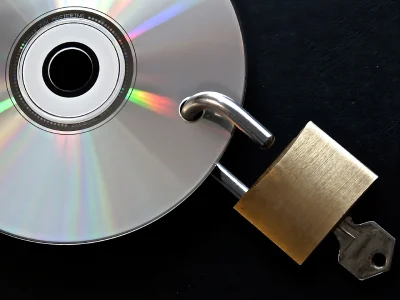One of the most important aspects of data management is ensuring that the data you store, transmit, or receive is safe and secure. That’s why organizations dealing with sensitive data must use encryption systems to keep their data and their customers’ data safe.
What Is Encryption and How Does It Work?
Data encryption is the process of converting data from a readable, plain text format into a scrambled format called cipher text. This protects data from unauthorized access and use.
To read and process encrypted data, it must be decrypted. This is the process of converting cipher text to plain text. Decryption requires a special key that must be kept safe.
Encryption is crucial, as most businesses handle a lot of clients’ personal data both online and on their corporate servers. With data protection laws becoming more stringent due to the rise in cybercrimes, you have no choice but to invest in good data encryption software for your organization.
Encryption Key Generation and Management
An essential aspect of effective data security is encryption key management. This means managing the entire life cycle of cryptographic keys, including generating, distributing, destroying, storing, and backing up keys.
Managing cryptographic keys effectively is also crucial to data protection. Once a key falls into the wrong hands, it can be used to decrypt your encrypted data. It can also weaken the algorithm employed by your encryption systems.
Types of Encryption
There are many different types of encryption you can use. Each is designed according to the level of security needed.

However, most encryption types are based on two types of cryptographic key systems, symmetric and asymmetric.
- Symmetric encryption. A single password is used to encrypt and decrypt data.
- Asymmetric encryption. Two keys are used for encryption and decryption. The first is a public key, which is shared among users and encrypts the data. The second is a private key that decrypts the data. This key is not shared.
Let’s take a deeper look at the most common types of encryption. Most are based on the symmetric and asymmetric encryption methods.
Data Encryption Standard (DES)
Data Encryption Standard (DES) is one of lowest level encryption types. It was established by the U.S. government in 1977. As technology has advanced rapidly, DES has almost become incapable of protecting sensitive data. DES uses the symmetric key system.
Triple DES
As the name suggests, Triple DES (symmetric) runs the standard DES encryption three times. The data encryption software encrypts, decrypts, and encrypts the data again. That’s why it’s called Triple DES. It’s an improvement, in terms of data security, on the DES standard, as the triple encryption strengthens the original DES standard.
RSA
RSA encryption is one of the more popular encryption types, as it uses a strong algorithm to encrypt data. Named after three computer scientists—Rivest, Shamir, and Adleman, RSA is popular due to its key length. Longer keys are harder to “break,” making RSA a popular choice for secure data transmission. RSA uses the asymmetric encryption system.
Advanced Encryption Standard (AES)
Advanced Encryption Standard (AES) has been the U.S. government’s encryption standard since 2002. It has been proven to be six times faster than Triple DES and more secure; thus, its global adoption.
Reasons You Must Use AES-256 Encryption
If you’re looking for a data encryption solution for your organization, you should consider encryption systems that use the AES-256 encryption standard. Here are some of the most common advantages that make it the winning choice:
- A longer key size, which translates to stronger encryption.
- A larger block size, resulting in the capability to encrypt larger files.
- Compatibility with hardware and software implementations.
- Faster and more secure than other encryption types.
Because of these reasons, we base all our encryption systems on the AES-256 standard. That, and our industry leading technology, will give you the Ciphertex® advantage.
So, if you need data security solutions, browse our selection of encryption systems and take your pick. Alternatively, give us a call at 818-773-8989, and we’ll help you pick the best solution for your organization.
